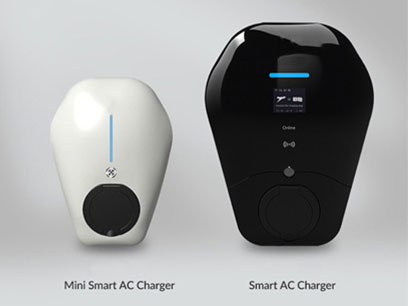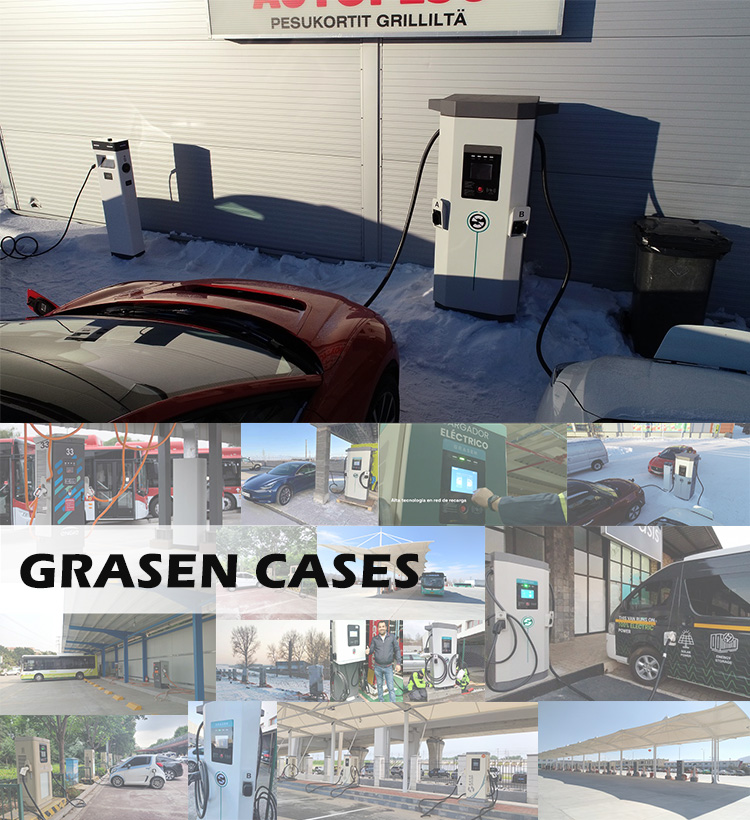Time:
Electric vehicles (EVs) are rapidly gaining popularity, as people are becoming more aware of the benefits of electric cars, such as reduced emissions, lower fuel costs, and fewer maintenance expenses. One of the biggest concerns of EV owners is range anxiety and finding charging stations when they need to charge their vehicles. Fortunately, the number of electric charging stations is growing rapidly, making it easier for EV owners to recharge their vehicles.
Electric charging stations come in different types, each with its unique features, advantages, and disadvantages. In this article, we will discuss different types of electric charging stations and their features.
Level 1 charging stations are the most basic type of electric charging station. They use a standard 120-volt household outlet and can charge a vehicle's battery from zero to full in about 8-12 hours.
Level 1 charging stations are inexpensive and easy to install, making them a popular choice for home charging. However, they are not practical for public charging, as they are slow and cannot provide enough power for extended-range trips. So Level 1 charger is used primarily as an additional, emergency, or backup charging solution.
Level 2 charging stations use a 240-volt power supply, similar to that used for an electric stove or clothes dryer. These charging stations can charge a vehicle's battery much faster than level 1 stations, usually in about 4-6 hours. Level 2 charging stations are commonly found in residential, workplaces, and commercial parking lots.

Level 2 Home EV Charger
DC Fast Charging Stations, also known as Level 3 charging stations, are the fastest type of electric charging station available. They use a high-powered DC charging port to charge a vehicle's battery up to 80% in about 30 minutes. DC Fast Charging Stations are commonly found on highways, where EV owners need to recharge their batteries quickly. However, they are expensive to install and require a powerful electrical infrastructure, limiting their availability.

Wireless charging stations, also known as inductive charging, use a pad or plate embedded in the ground to charge the vehicle's battery. The charging process begins when the car is parked over the pad, and the charging is done through electromagnetic induction. Wireless charging stations are still in the early stages of development and are not widely available yet.
Apart from charging speed differences, EV chargers can also be distinguished between non-networked chargers and networked chargers.
Non-networked chargers are mostly used in residential or workplaces.
Users just need the basic charging function without charging management needs, or payment functions. Just the basic plug & charge mode. The cost of non-networked chargers is comparatively lower too.
While networked EV chargers are more common in commercial/workplace settings where payments are required. Some of the enhanced features include remote access/control via 4G or Ethernet, access control/ability to accept multiple forms of payment, load balancing across multiple chargers, and more.
Networked chargers are useful for commercial EV charging station management. Their smart charging function enables multiple vehicles to share a single charger, or help to balance the load between chargers and other appliances.
Furthermore, networked EV chargers can set charging schedules, which allows the operator to maximize a time-of-use electricity rate structure and only allow charging when electricity is the cheapest. Therefore, networked chargers are usually the ideal options for a workplace or commercial site.
In conclusion, electric charging stations play a vital role in the transition to electric vehicles. They are available in different types, each with its unique features, advantages, and disadvantages. Level 1 and Level 2 charging stations are commonly used for home and public charging, while DC Fast Charging Stations are more suitable for long-range trips. The development of wireless charging stations shows the potential for even more convenient and accessible charging options in the future.
Submit Request